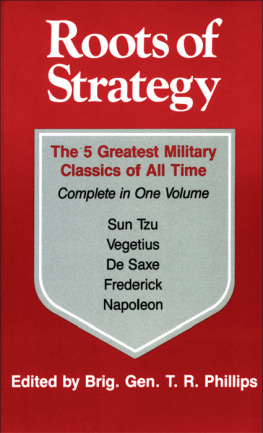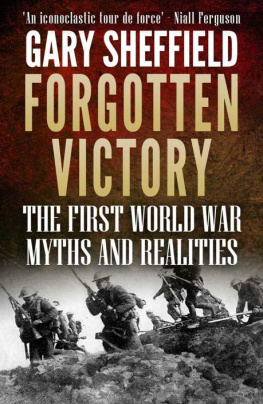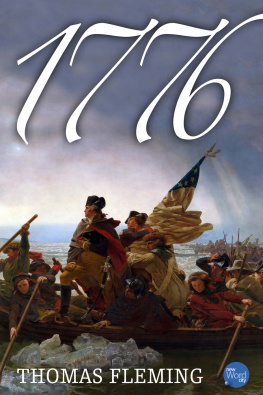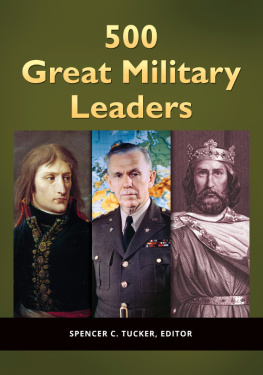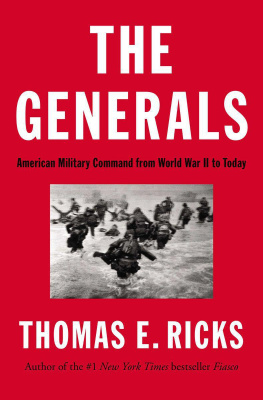Published in the United States of America and Great Britain in 2016 by
CASEMATE PUBLISHERS
1950 Lawrence Road, Havertown, PA 19083, USA
and
10 Hythe Bridge Street, Oxford OX1 2EW, UK
Copyright 2016 Thomas D. Phillips
Hardcover Edition: ISBN 978-1-61200-360-3
Digital Edition: ISBN 978-1-61200-361-0
A CIP record for this book is available from the British Library
All rights reserved. No part of this book may be reproduced or transmitted in any form or by any means, electronic or mechanical including photocopying, recording or by any information storage and retrieval system, without permission from the publisher in writing.
Printed and bound in the United States of America
For a complete list of Casemate titles, please contact:
CASEMATE PUBLISHERS (US)
Telephone (610) 853-9131
Fax (610) 853-9146
Email:
www.casematepublishers.com
CASEMATE PUBLISHERS (UK)
Telephone (01865) 241249
Fax (01865) 794449
Email:
www.casematepublishers.co.uk
PREFACE
History plays tricks sometimes. Its judgments can raise up events or issues or people, or diminish them, painting some in bright tones while casting others in shadows. It can exalt, or disparage, or ignore. During the course of Americas existence, history has immortalized an exceptional few while making footnotes, at best, of others.
History, though, is neither a rigid nor an exact science. While enshrining some in the collective consciousness of the nation, it has overlooked others often equally as deserving.
This book is about some of those who have been overlooked; military leaders throughout Americas history whose accomplishments have not been widely recognized. Although our nation owes them considerable debts, their services have been too little acknowledged and too seldom celebrated.
As all who study history understand, its verdicts are not immutable. Judgments sometimes change as new information reshapes perceptions of persons or events. Alternately, modem scholarship may revise interpretations of dated material, changing long-standing opinions of wars and battles and the people who fought them. Perhaps the stories in the book will cause readers to reflect further and discover heroes whose services to our country have been undervalued or overshadowed by more renowned contemporaries.
In preparing this book, I solicited comments and recommendations from the military history departments at the United States Military Academy, the United States Naval Academy, the United States Air Force Academy, Virginia Military Institute, The Citadel, and the University of Nebraska-Lincoln. I am particularly grateful to the faculty and staff at Virginia Military Institute, the United States Air Force Academy (most especially Lieutenant Colonel Douglas Kennedy), United States Naval Academy (Lieutenant Commander Jourdan Travis Moger), and Dr. Peter Maslowski, University of NebraskaLincoln, for so graciously investing their time to provide detailed, thoughtful, comprehensive responses while identifying candidates for consideration.
General George H. Thomas, who commanded the Unions Army of the Cumberland during the Civil War, was the name most often mentioned by military historians. There was, however, nothing approaching a unanimous recommendation for any leader in any war. That outcome is altogether to be expected considering the different experiences, interests, and areas of expertise brought to the project by historians who contributed to it. It also accurately reflects the breadth of opinions regarding a most subjective, and at times highly controversial, issue.
Ultimately, though, the choices were mine alone. Discussions regarding themthose who made the list and those who did notare welcomed. Indeed, the resulting dialogue may help shine needed light on deserving individuals whose contributions went above and beyond the call of duty but whose services to our nation are but little remembered.
One modest surprise resulted from this study: the identification of a few leaders whose major renown is associated with a specific warGeneral Winfield Scott as Americas military leader during the War with Mexico, for examplewho also rendered exceptional, though largely forgotten service during a different conflict (in Scotts case, the War of 1812 and, to a lesser extent, the Civil War). Examples are noted throughout the book.
At the end of each chapter, a Deeper in the Shadows section with accompanying brief biographies identifies officers whose contributions, while perhaps a bit less consequential than those of colleagues chronicled elsewhere in these pages, are deserving of far more recognition that has thus far been accorded them.
This volume covers leaders in the shadows during the seven major conflicts that occurred during the first roughly one hundred years of the nations existence. A second volume will continue the story beginning with the Spanish-American War and carry it through the wars in Iraq and Afghanistan.
Special thanks
I am especially indebted to Caxton Press for enabling me to draw from my works Battlefields of Nebraska and Boots and Saddles: Military Leaders of the American West in developing material for the Indian Wars of the American West chapter, and to Jeanne Kern for her usual wise counsel, friendship, and superb editing skills.
EXPLANATORY NOTES
Officer ranks
For more than a century after the nations founding, brevet ranks were a feature of the American military. A brevet rank was a nominal promotion to a higher grade without commensurate pay or specific authority given as recognition for service or actions during a battle, campaign, or war. Thus it was not uncommon for an officer to hold two ranks: a permanent, official rank in the Regular Army and a brevet rank. The permanent rank was always lower than the brevet rank. The brevet rank was intended to be temporary, although many officers continued to be addressed by the higher brevet rank as a courtesy. George Armstrong Custer, for example, a lieutenant colonel in the Regular Army, was often referred to as Generala carryover from the brevet rank he achieved during the Civil War.
During the Civil War, the rank situation could sometimes be further confused by the fact that officers could hold brevets and actual, full ranks for service in both the Regular Army and the United States Volunteers. It was therefore possible to hold as many as four ranks simultaneously. For example, Ranald Mackenziewho held commissions in both the Regular Army and the U.S. Volunteerswas a brevet major general of volunteers, an actual full brigadier general of volunteers, a brevet brigadier general in the Regular Army, and an actual Regular Army captain.
Where appropriate, I have tried to acquaint the reader with the actual and brevet ranks held by the officer whose story is being told. In the narrative discussion, when necessary to specify the officers rank, I have attempted to consistently use the rank by which he was most commonly addressed at the time.
Army structure and terms
For much of its existence, from smallest to largest unit, the United States Army has been organized in companies, battalions, regiments/brigades, and divisions. In recent years, the term brigade has come increasingly to identify the Armys operational units above the battalion level. Through the Civil War and the wars with the Indians, such units were identified as regiments. Cavalry troop is a generic term typically given to a small force of horse soldiers. The term dragoon originally referred to mounted infantry and was then subsequently associated with light cavalry forces. Prior to the Civil War, the United States Army re-designated its existing dragoon units as cavalry regiments.





